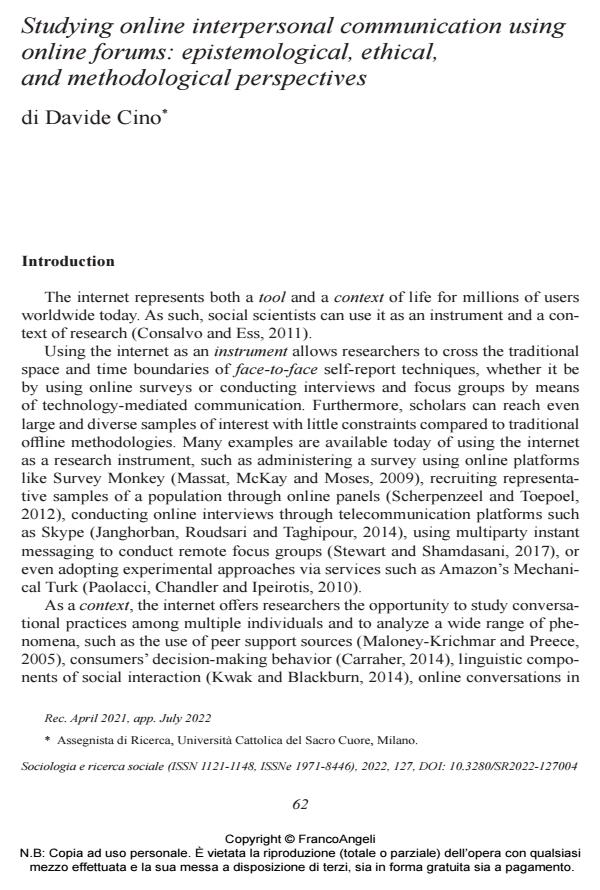Studying online interpersonal communication using online forums: epistemological, ethical, and methodological perspectives
Titolo Rivista SOCIOLOGIA E RICERCA SOCIALE
Autori/Curatori Davide Cino
Anno di pubblicazione 2022 Fascicolo 2022/127
Lingua Inglese Numero pagine 19 P. 62-80 Dimensione file 210 KB
DOI 10.3280/SR2022-127004
Il DOI è il codice a barre della proprietà intellettuale: per saperne di più
clicca qui
Qui sotto puoi vedere in anteprima la prima pagina di questo articolo.
Se questo articolo ti interessa, lo puoi acquistare (e scaricare in formato pdf) seguendo le facili indicazioni per acquistare il download credit. Acquista Download Credits per scaricare questo Articolo in formato PDF

FrancoAngeli è membro della Publishers International Linking Association, Inc (PILA), associazione indipendente e non profit per facilitare (attraverso i servizi tecnologici implementati da CrossRef.org) l’accesso degli studiosi ai contenuti digitali nelle pubblicazioni professionali e scientifiche.
With conversational platforms like online forums offering researchers insight- ful deposits of human traces, considering the opportunities and limits of studying online interpersonal communication is crucial for social scientists. Building on lessons learned from a personal research journey, this paper presents the ration- ale behind using natural online data, ethical considerations and practical advice to choose a context of data collection, generate and analyze a proper database. The contribution homes in on epistemological, ethical, and methodological per- spectives to provide scholars with guidance on some strategies to select, read, and scrutinize online interactional data in an ethically informed and methodologically sound fashion.
Davide Cino, Studying online interpersonal communication using online forums: epistemological, ethical, and methodological perspectives in "SOCIOLOGIA E RICERCA SOCIALE " 127/2022, pp 62-80, DOI: 10.3280/SR2022-127004